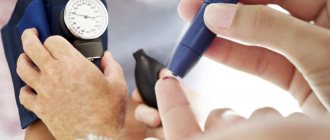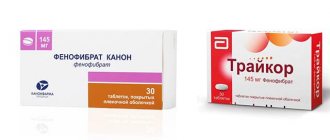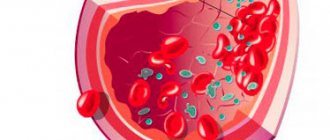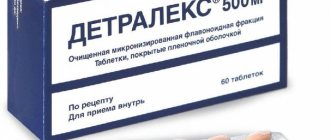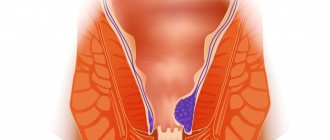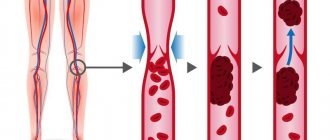Depression is a pressing problem; the number of visits to doctors is growing every year. It can be solved by contacting a psychotherapist and taking antidepressants . These are medications that regulate the production of hormones and biochemical processes in the body. to prescribe them to yourself, since these are complex drugs with certain restrictions and side effects . The doctor must authorize their use and supervise their use. We will tell you which of them are the most effective and common in medicine, and how many pros and cons they have.
What is meant by depression
Doctors have been familiar with it since the times of Ancient Greece and Egypt. Hippocrates described it as melancholy - a condition that is accompanied by anxiety, despondency, insomnia, refusal of food, and irritability. Most often, the cause is childhood trauma or severe, frequent stress in adulthood. There are many provoking factors: the death of a loved one, worsening living conditions, alcoholism, brain diseases. Such cases are referred to as psychogenic depression.
The second type is endogenous. The problem does not arise from major external shocks, but from internal causes. A person is constantly dissatisfied with himself and exposes himself to criticism. Many patients have panic attacks and are haunted by feelings of fear and anxiety.
Sedatives
All sedatives and sleeping pills, as well as some dietary supplements and homeopathic remedies, have a sedative effect. If the problems are not very pronounced, are associated with temporary difficulties or general weakening of the body, for example, after surgery, you can choose names that are not medications.
Taking serious sedatives comes with a number of risks, as they have a long list of side effects and are addictive. Only a specialist can prescribe treatment.
How is depression treated?
Depression has been treated in different ways. In the ancient world - emetics and laxatives. In the Renaissance - wine and sunbathing. In the Age of Enlightenment - external irritants, for example, insects. The 19th century brought new recipes - in particular, a solution of camphor in tartaric acid. The treatment also included taking drugs that are now no longer allowed for sale, and some are recognized as narcotic.
Obviously, all these drugs had no effect on increasing the amount of serotonin. And the treatment consists precisely in normalizing its production. This was done after the creation of modern antidepressants , which have a minimum of side effects, are safe for the body and are not addictive. These are medications action is aimed specifically at equalizing the disturbed balance of neurotransmitters: serotonin, norepinephrine, dopamine.
Sedatives
Not a recommendation. Any medications are taken only as prescribed by a doctor
Calming pills for health.
· What are sedatives?
Sedatives
are medications that can slow down brain activity, reduce irritability and arousal processes. Such drugs are used to relieve anxiety and irritation, and eliminate sleep disorders.
· In what cases is the use of sedatives indicated?
Doctors prescribe sedatives for sleep disorders and increased anxiety. Sedatives are also used during surgical interventions and painful, unpleasant procedures (eg colonoscopy, gastroesophagoscopy), which can increase the patient's anxiety and worry. Taking these drugs during surgery is necessary before general anesthesia. By themselves, they do not have an analgesic effect, but make the procedures easier to endure.
Sleep disturbance and increased anxiety are the first symptoms of stress. Stress is the body's reaction to various unfavorable factors affecting it. Small stressful situations are necessary to keep the body in good shape. But if stress becomes constant, a person needs to spend a lot of strength and energy to resist it, he becomes susceptible to illness, sleep disturbances, excess weight gain, mood changes and uncontrollable behavior. In a state of chronic stress, a person experiences a constant increase in blood pressure, glucose imbalance and its digestibility, which leads to the development of diabetes. All this leads to a sharp increase in the risk of developing cerebral stroke and heart attack.
The most common symptoms of stress are:
- increased irritability, dissatisfaction with people around you, the situation; -depression, weakness, severe fatigue, reluctance to do something; - restless sleep, complete lack of sleep (insomnia); - inability to relax, feeling of constant tension, feeling of trembling in the hands and body; -low concentration of attention, inability to perceive complex or new information, memory impairment; -lack of appetite or vice versa - excessive desire to consume, bad habits - smoking, drinking alcohol, narcotic substances.
The use of sedatives in case of chronic stress, along with other methods (elimination of stress factors, physiological procedures, correction of the psycho-emotional state), helps return the body to a comfortable state, increase immunity and improve the patient’s quality of life.
In adults, indications for the use of sedatives are life situations that place a person in a state of acute stress or constant psycho-emotional stress associated with work processes. Even physically healthy people who experience increased physical activity (professional athletes) experience excessive tension in the nervous system, which leads to disruption of the training process. Therefore, doctors often prescribe sedatives that help the body relieve stress and reduce anxiety.
In children, the development of the nervous system occurs gradually. At an earlier age, she may have increased excitability and sensitivity to stress factors. If symptoms of stress in a child are a regular occurrence, this may be a manifestation of an age-related crisis. At 3, 7 and 14 years old, a child overcomes the stage of growing up, so instability in behavior is not a pathology. But children's doctors recommend taking sedatives during this period to alleviate stress and make this stage go more smoothly. Also, during high mental stress, for example during exams, tests and tutoring, taking sedatives helps the child cope with stress more easily. It is necessary to understand that a child’s bad behavior and emotional instability may not be a manifestation of bad character, but a cry for help from his nervous system. Sedatives will allow the child to relieve anxiety and establish contact with the outside world.
Pregnancy is always stressful for the female body. Rapid changes in hormonal levels, poor health during toxicosis, possible problems during pregnancy - all this contributes to the emergence of neuroses. Excessive psychological stress can provoke an increase in uterine tone, which can lead to such serious complications as fetal hypoxia and even miscarriage. A mother's restless state can lead to the birth of an equally restless child. But taking sedatives during pregnancy is always prescribed with great caution. Most drugs do not have a proven lack of adverse effects on the fetus, which narrows the number of drugs that are safe for the child to take.
Older people are more likely to experience anxiety and worry than middle-aged people. Deterioration in the functioning of organ systems, a decrease in memory reserve, and a slowdown in thinking processes negatively affect the mental state. Due to increased anxiety, insomnia and feelings of powerlessness may occur. A sedative will improve the quality of life of an elderly person and will help overcome feelings of timidity, groundless fear, and irritability. For older people, herbal preparations that have a mild calming effect are recommended. They act very gently and are not addictive.
· How do sedatives work?
Let's take a closer look at how sedatives work. Sedatives work by changing certain nerve connections in the brain and central nervous system (CNS). In this case, they relax your body by slowing down your brain activity.
Two main processes occur in the human nervous system: inhibition and excitation. In a normal state, there is a balance of these processes. When necessary, a person is cheerful and energetic, or vice versa - calm and restrained. He can control his emotions and mood. If the balance is disturbed in the direction of increased inhibition, the person loses interest in life and becomes depressed. If excitement begins to prevail over inhibition, feelings of aggression and irritability appear. With prolonged arousal, aggression is replaced by fatigue, tearfulness, and impotence.
Sedatives enhance inhibition during increased nervous excitement and reduce the excitability of nerve cells. The mechanism of action is associated with a general inhibitory effect on the central nervous system (brain).
Based on the speed of onset of effect, sedatives can be divided into two groups:
1) Means of situational action; 2) Means of cumulative action; 3) Combined action agents.
Drugs of the first group are suitable for rapid action; they begin to work with 1 application. But they are powerless in cases of chronic stress. Drugs of the second group gain their effect within several weeks, but even after stopping the use they continue to have a calming effect.
There are also drugs, the effect of which does not develop so quickly, but as they are taken, they accumulate in the body and stabilize the nervous system. Such funds are taken in courses several times a year, and the cumulative effect will extend to the breaks between doses.
· The benefits and harms of sedatives.
Based on the survey results, people taking sedatives noted the following positive aspects of taking them: - relieving nervous tension (nervousness, fear, anxiety); -help in dealing with stress; -improved sleep and emotional state; -elimination of depression and fatigue; -reduced dependence on weather.
But it is worth understanding that, like any drug that has a serious effect on the nervous system, sedatives also have side effects. With proper selection of the drug and its administration, the risk of side effects is minimized. If taken incorrectly, side effects can occur even with herbal sedatives.
The most common side effects include: - addiction to the drug; - the so-called withdrawal syndrome when stopping the drug incorrectly. Abrupt withdrawal can lead to headaches, dizziness, severe ailments and a general deterioration in quality of life.
· Types of sedatives?
All sedative drugs can be divided into groups according to their pharmacological properties and the composition of the main active ingredient. We will analyze the most common groups, as their strength increases: · Herbal · Synthetic · Homeopathic medicines · Medicines with a combined composition · Antidepressants · Neuroleptics · Sedative tranquilizers
Herbal preparations.
Preparations from plant materials (valerian roots, motherwort leaves and flowers, passionflower shoots) have been used as sedatives for a very long time. This group of drugs is characterized by a mild cumulative effect, the possibility of long-term use without addiction, and a low risk of side effects. The most effective plants in this group are valerian, motherwort, peppermint, hops, peony, passionflower, and lavender. They are a basic component of many patented single-component and complex sedatives.
Soothing collection No. 3
Novo-passit Persen
Synthetic preparations.
This group of drugs has a more pronounced effect on the nervous system and has contraindications and side effects in greater quantities than herbal remedies. In this regard, the list of over-the-counter drugs of the synthetic group is not so large. These include Afobazole, Glycine.
Afobazole
It reduces anxiety well and has a slight stimulating effect. After just a week of taking it, a person feels a decrease in irritability, tearfulness, and improved sleep quality. The maximum effect is observed by the end of the month and lasts for two weeks after the end of the dose. Release form: 10 mg tablets. They are recommended to be taken 3 times a day. Contraindicated in children under 18 years of age, pregnant and lactating women. Can be used in short courses.
Glycine
The most accessible, most common, most popular drug during the exam session. This is an amino acid that is synthesized in the human body and participates in metabolic processes.
During times of stress and increased mental stress, the amount of glycine produced is not enough for brain tissue. Then this drug comes to the rescue. Glycine is available in tablets, which are recommended to be placed under the tongue until completely dissolved. During periods of psycho-emotional stress and increased physical activity, you should take 3 tablets during the day, in a course of 2-4 weeks.
Homeopathic medicines
The group of homeopathic remedies compares favorably with synthetic ones due to their mild effect on the nervous system.
They do not cause pronounced mental depression and do not have undesirable effects on other organs. The most famous homeopathic medicines are Homeostress
and
Nervohel
.
These are multicomponent drugs produced in the form of tablets for sublingual resorption. That is, one tablet must be placed under the tongue and dissolved until completely dissolved. These drugs are approved for use starting from 3 years of age. No side effects were identified.
The use of only homeopathic remedies is possible for mild nervous system disorders. In moderate and severe conditions, complex treatment with the use of more potent drugs is necessary.
Combination medications
A combination drug is a product that contains herbal and synthetic components. Typically, the dosages of active ingredients are minimal, but thanks to their combination, the calming effect is significant. Combined sedatives are available without a prescription and are taken in short courses of up to 1 month.
Corvalol
A popular drug invented in the last century. It is still quite relevant today. It contains ethyl alcohol and phenobarbital (a fairly strong psychotropic substance), and peppermint oil is used as a herbal component. Together, these components enhance each other's effects. The product is suitable for quickly relieving stress. Contraindicated for children and pregnant women. After taking Corvalol, you should not drive a car.
St. John's wort + Glycine
A popular example of a combination of a plant component with a synthetic one. The effect accumulates gradually, but after 1 week of use, patients noted a decrease in anxiety, deeper sleep, and improved well-being after waking up. Available in tablet form. It is recommended to take 2-3 tablets 3 times a day with meals.
Antidepressants
Depression is a long-term (more than 2 weeks) decrease in mood. Added to this is complete powerlessness, a feeling of emptiness in the soul, slowing down of movements and thought processes. This is a severe psycho-emotional condition that requires the supervision of a psychiatrist and the prescription of potent medications. Antidepressants include the following qualities: they are not stimulant drugs and begin to work after some time from the start of use.
All antidepressants can be divided into two main groups:
- tricyclic antidepressants - selective serotonin reuptake inhibitors
The first group is the longest used and, accordingly, the most studied. But because tricyclic antidepressants have a large number of side effects, the risk of overdose and the presence of a large number of contraindications, doctors prescribe drugs from a different group. Selective reuptake inhibitors are modern drugs with easy tolerability. Therefore, in many countries, a drug from this group is prescribed for anxiety disorders, depression, various phobias and chronic pain. Side effects when taking it include weight gain, nausea, and sleep disturbances in the first days of taking it. Their intake should be monitored by a psychiatrist; in each case, the dose is selected individually, taking into account concomitant diseases and the severity of the patient’s emotional state.
Neuroleptics.
Neuroleptics are drugs that affect brain activity and normalize mental functions. They used to be called “major tranquilizers.” The main effect of this group of drugs is to normalize the excitation systems in brain cells and reduce this activity to normal levels. At the same time, a person’s attacks of aggression, irritability, and agitation decrease.
In addition, they have a calming and hypnotic effect, stabilize mood, and improve cognitive functions (the ability to think normally and remember). What is important is the selection of a drug that will be suitable for treating a particular patient. The main undesirable effects when taking antipsychotics include: increased appetite, weight gain, disruption of the endocrine system. The selection of these medications is carried out by a doctor; self-medication with substances of this group is unacceptable.
Sedative tranquilizers
This group has five main components of activity: anti-anxiety, sedative, hypnotic, relaxant, anticonvulsant. They are mainly used for anxiety conditions, as well as for short-term elimination of anxiety symptoms (short courses). When prescribing these drugs, the doctor increases the dose gradually, brings it to the optimal dose, and then gradually reduces it to avoid withdrawal syndrome (when the condition sharply worsens after stopping use). These medications should be taken for no more than 2-3 weeks, because tranquilizers can be addictive. Also, while taking sedatives, a person should not drive a car or work in a place where increased concentration is required.
· How to choose sedatives?
How can one find a remedy among such a variety that will help restore peace of mind? For mild stress, monocomponent herbal and homeopathic medicines, as well as mild synthetic medicines, will help. But sometimes they are not enough, and there is not enough opportunity or time to consult a psychiatrist to select potent medications. In this case, preparations of a combined composition (including synthetic and herbal components), or multicomponent herbal preparations, will be relevant.
· Over-the-counter sedatives
All herbal preparations are available without a doctor's prescription. The most common of them are Novopassit, Persen, tinctures of valerian, peppermint, and peony. Glycine, Tenoten, Afobazole are effective sedatives of the synthetic group, available without a prescription.
· Prescription sedatives.
Potent groups of drugs are always dispensed only with a prescription, since their use must be carried out under the supervision of a doctor. All antidepressants are sold strictly by prescription. You need to listen to the state of your body. Taking strong medications is necessary only in advanced cases, when the nervous system is so exhausted that it can no longer cope with stress with the help of mild sedatives. To prevent stress from becoming chronic, prevention is necessary.
Give your body a rest, allow yourself to relax in your free hours. Sometimes it’s useful to just do nothing, watch a movie or listen to pleasant music, or take a bath. Adjust your diet. Too many carbohydrates and fats disrupt metabolic processes, and excess sweets cause mood dependence on food, which will subsequently also negatively affect mood and energy replenishment. The absence of bad habits and addictions helps the nervous system maintain a balance between excitation and inhibition.
The quantity and quality of sleep is equally important for balance in mood. During sleep, information is processed and the body's strength is replenished, including in order to better withstand stress the next day without putting your body under excessive emotional stress.
Staying in good physical shape is a great way to combat stress. Choose a sport that is comfortable for you, for example, dancing perfectly improves mood and self-esteem, especially in women.
If a feeling of exhaustion, fatigue and low mood haunts a person for a long time and mild sedatives do not help, it is recommended to consult a specialist who will select the necessary drug with the least side effects. Be healthy not only physically, but also emotionally!
THERE ARE CONTRAINDICATIONS, YOU MUST READ THE INSTRUCTIONS OR CONSULT WITH A SPECIALIST.
Purpose
If a healthy person takes antidepressants, there will be no effect . Taking them will help a patient with depression:
- improve psychological state;
- get rid of irritability;
- panic fear;
- increase mental and physical activity;
- overcome sad mood.
Psychiatrists prescribe antidepressants for chronic back pain and headaches. And also for irritable bowel syndrome, incontinence and other cases when the body stops producing its own painkillers. Taking medications helps restore pain suppression mechanisms.
take these medications only with a doctor's prescription, since many of them are strong stimulants . Self-prescription may be expensive and may worsen the condition. Only a doctor will correctly calculate how much medicine to take per day. with a psychotherapist is required .
Indications for use
Sedatives of varying intensity are prescribed to adults and children when diagnosing nervous system disorders.
For adults
Most often, the underlying factors for taking sedative medications are:
- Rapid irritability;
- Headaches, the etiology of which is not related to other diseases;
- Lack of control over emotions;
- Outbursts of aggression, rage;
- Sleep disturbance, regardless of the cause of the symptom.
Drugs for sedation are prescribed to people for diseases accompanied by severe itching, burning, pain, that is, in situations where the human body cannot relax in order to rest.
For children
Every parent knows that children are very active. Normally, morning mobility decreases towards daytime sleep, when the child is tired physically and from the impressions received. The same thing happens after lunch. However, in some cases symptoms such as:
- Anxiety;
- Tearfulness;
- Hyperactivity without a break for sleep;
- Hysterics;
- Capricious behavior.
If manifestations are not observed often, there is no need to worry - this may be a reaction to the parents’ reluctance to please any whim or a consequence of severe fatigue. But when symptoms appear every day, you need to consult a doctor, as they indicate improper development of the central nervous system.
Sedatives help stabilize the central nervous system and ensure that the child has proper rest. Naturally, these drugs are much gentler than products for adults, but you should not abuse them.
Pregnant
A special category of patients who are prescribed sedative medications are pregnant women. There may be several indications for such a prescription:
- Severe anxiety about the health of your baby;
- Late insomnia;
- Strong emotionality or impulsiveness at any time;
- Nervousness caused by lack of vitamins;
- Constant bad mood.
Many medications can harm the unborn child, so treatment of a pregnant woman with medications throughout the entire period of gestation is carried out only when there is a real risk to the health of the mother or fetus. Typically, pregnant women are prescribed herbal teas, aromatherapy and other methods of finding harmony with their condition.
Precautionary measures
- They start taking the prescribed drug with a small dose - for the first couple of days they take a quarter of a tablet. Gradually the dose is increased to normal. This way the body adapts better. The course is completed by reducing the dose.
- The first effect appears only 2 weeks after the start of treatment. Sustained action - after six months. All this time you need to take the drug without skipping or breaks.
- The products cannot be combined with melatonin, St. John's wort, products and dietary supplements based on sibutramine, 5-NTR. The combination of the two can increase serotonin to dangerous levels. They also cannot be combined with monoamine oxidase inhibitors. When writing a prescription , the doctor takes these points into account.
- to take antidepressants in parallel with visits to a psychotherapist. If the drugs normalize the biochemical processes in the body, then this doctor will help normalize the psychological state after depression.
Sleeping pills
Sleeping pills are necessary for patients who suffer from various sleep disorders.
The intensity is selected according to the etiology of insomnia and the complexity of its development. Strong sleeping pills are prescribed in rare cases and are available only with a prescription. Pharmacy kiosks offer a variety of medications to stabilize sleep, with sedative effects of varying strength. Most of them are based on herbal ingredients, but there are completely synthetic formulations for people prone to allergic reactions. Each drug has its own characteristics:
- Speed of falling asleep;
- Duration of action;
- Age restrictions;
- Recommendations and contraindications;
- Compatibility with other drugs;
- Reasons for admission.
Some patients need sleeping pills to get rid of insomnia as a pathological condition, while others need a fast-acting remedy to quickly get used to changing time zones, while others just need to “survive” the flight. Only a neurologist or somnologist will help you choose a medicine after diagnosing the disease and a detailed study of the symptoms.
You also need to understand that some sedatives have a cumulative effect, others are addictive, and an overdose can be fatal. Therefore, you must approach this treatment method with caution, consult your doctor before visiting the pharmacy and strictly follow the dosage prescribed in the instructions. If for some reason the product does not help, you should choose a drug based on other active ingredients.
Homeopathic remedies
Homeopathic medicines are not classified as medicines because they are based on natural ingredients and sweeteners. Some doctors agree that the therapeutic effect of homeopathic remedies is based on self-hypnosis. Despite this, you should not abuse the drugs, as they have their side effects and can negatively affect the function of the kidneys and liver.
Calm down
The release form of the drug is tablets. Their use is relevant in a state of increased nervous excitability according to the instructions for use. Contraindications to treatment:
- Pregnancy, lactation;
- Intolerance to components;
- Age up to 18 years.
The effect of taking it is cumulative. The course of treatment is determined for a specific case, but on average lasts from 1.5 to 2 months. During therapy you will have to stop drinking alcoholic beverages.
Allora
A mild sedative, the effect of which is based on passionflower extract in the composition. Allora is prescribed for severe stress, depression, and insomnia.
The medicine is contraindicated in children under three years of age, as well as in patients with severe sensitivity to plant components. Allora is incompatible with other sedatives and sedatives. During treatment, complete abstinence from alcohol is recommended.
Nervochel
Doctors prescribe the drug as a mild sedative for menopause or developing parasomnia. Children under 3 years of age are not allowed to use Nervochel; however, treatment during pregnancy and breastfeeding is allowed, subject to constant supervision by specialists.
Neurosed
A relatively safe mild sedative produced in the form of granules.
It is prohibited for children, adolescents under 18 years of age, as well as patients with a predisposition to allergies. Neurosed helps cope with menopause and increased nervous excitability. It stabilizes sleep and improves the quality of rest.
Bromides
Already from the name it is clear that the main active component of the medicinal group is bromine. It helps slow down processes in the brain, stabilizing the overall nervous state of the body.
Bromine is an inexpensive component, so most drugs based on it are classified in the budget segment. The main disadvantage of therapy is the risk of developing bromism, that is, bromine poisoning, accompanied by rhinitis, cough, allergic rashes, and excessive lacrimation.
Adonis bromine
Anti-stress tablets with the auxiliary spring glycoside adonis.
Adonis Bromine significantly reduces the heart rate, so it is contraindicated for angina pectoris and bradycardia. Additional contraindications include age under 18 years, diagnosis of a stomach ulcer, as well as bearing a child or breastfeeding. Take Adonis Bromine three times a day, one tablet according to the course determined by your doctor.
Bromcamphor
A medicine with an additional active component camphor is prescribed for the following diagnoses:
- Tachycardia;
- Labile pressure;
- Mild parasomnia;
- Neurosis.
Bromcamphor is contraindicated for children of preschool age, as well as for people with a pronounced allergic reaction to the components of the drug. Caution should be exercised when treating patients with renal and liver dysfunction. Special side effects of long-term use include severe lethargy and dyspepsia.
Other groups
This category includes synthesized drugs with various active ingredients. Their purpose is determined by the nature of the disease and the characteristics of the patient’s body.
Magnesia
The solution, used intravenously, is widely used in medical institutions during inpatient treatment for symptoms such as:
- Increased excitability;
- Pain in the uterus;
- Smooth muscle spasms.
A low dosage will have a sedative effect. As the dose increases, a hypnotic effect is observed. An overdose leads to poisoning, which only calcium chloride will help to cope with.
Phenibut
A strong sedative based on nootropic acid is prescribed for treatment extremely rarely. It is usually used during surgery to enhance anesthesia. In addition, it is used to control psychopathy disorders. Rarely used to treat complex forms of insomnia and neuroses.
Negative symptoms of treatment include dizziness, allergic reaction, and increased anxiety. The maximum course of treatment is 3 weeks.
Afobazole
An effective tranquilizer that successfully fights panic attacks, intestinal colic due to nervous disorders, and increased heart rate.
The tablets are contraindicated for women who are pregnant, breastfeeding, children and adolescents under 18 years of age, as well as people with intolerance.
Therapy according to the course does not cause side effects. Long-term treatment or overdose can cause allergies. The maximum allowed course of treatment is 1 month.
Tenoten
Anti-anxiety lozenges that do not cause drowsiness or inhibited reactions are popular due to their effectiveness and convenient release form.
They successfully cope with depression, irritability, stress, and VSD. In some cases, they are prescribed as a prophylactic agent. Contraindications are limited to age under 18 years, intolerance to components. No side effects were detected even with an overdose. The maximum recommended course of treatment is 3 months when taking up to 4 tablets per day.
Noxiron
A sleeping pill that helps stabilize sleep throughout the night. It works approximately half an hour after administration. A special feature of Noxiron is its compatibility with other sedatives.
Side effects are rare. As a rule, these are allergic rashes, rhinitis, sneezing. The danger of the drug is that it is addictive with long-term treatment.
Herbal sedatives
Medicines consisting only of herbal components are among the safest.
They are prescribed for treatment for children under 12 years of age, as well as for women during pregnancy and lactation. Taking herbal medications can reduce the negative effect on the kidneys, liver, pancreas, that is, all those organs that “suffer” when treating any disease with medications. When choosing this method of treatment, it is necessary to take into account that products based on plant extracts are not suitable for everyone. Each of them has its own list of contraindications, the most significant of which are individual intolerance and allergic reaction to the components included in the composition. Therefore, when purchasing even the safest product, according to reviews, you need to carefully read the instructions and make sure that it is suitable for your specific case.
The list of the most effective drugs for patients who do not require strong sedatives includes:
- Valerian
Available in the form of a sachet for brewing or a more effective alcohol tincture. The product normalizes sleep, reduces spasms in the intestinal area, and reduces nervous excitability. It is not recommended to use in large doses, as there is a risk of reducing heart rate.
- Passionflower
The medicinal plant, known scientifically as passionflower incarnate, is used to stabilize sleep phases. Preparations based on passionflower relieve convulsions, have a mild analgesic effect, and suppress excessive excitability of the central nervous system. A tincture of passionflower incarnate is prescribed to people with neurasthenia, depression, unreasonable anxiety and sleep disorders.
- Motherwort
A well-known folk sedative that even pregnant women are allowed to take throughout their entire period. Motherwort tea has a mild calming effect and makes it easier to go to sleep. An alcohol tincture is prescribed by a doctor, setting a strict course of administration, as it has a more pronounced sedative effect.
- Peony
Peony-based medicinal tincture is most effective for recovery after a nervous breakdown. It is prescribed to people with pronounced vegetative-vascular dystonia, as well as to neurasthenics. Peony extract can be seen in most existing herbal antidepressants.




